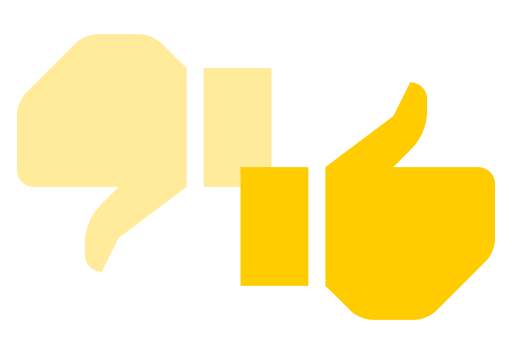-
Posts
435 -
Joined
-
Last visited
Reputation
167 ExcellentRecent Profile Visitors
The recent visitors block is disabled and is not being shown to other users.
-
This confused assortment of letters and punctuation is tedious, uninformed, and irrelevant; devoid of any moral or otherwise substantive content, it is an appalling travesty of a story and a paradigm of plebeian literature.
-
Heraclitus proposes that there is no perspective from which we can say that an object is x to which there is not another perspective from which we can say the object is not-x. Moreover, he says that just as a bow is a unity through two opposing forces, so any object is a kind of unity of opposites: “What is opposed brings together; the finest harmony is composed of things at variance, and everything comes to be in accordance with strife” (Aristotle, Nicomachean Ethics 8.2.1155b). However, is this a necessary truth about all objects? To attempt to answer this, we must first establish what an opposite is. The Pythagoreans, some 30 years before Heraclitus, made a list of ten opposites, which includes odd and even, right and left, good and evil. The Pythagoreans thought, as we do, that for every thing there was only one opposite. That is, unlike in a contradiction, where to contradict something (x) means to be anything whatsoever (not-x) except that thing which is being contradicted, the opposite (or contrary) of a thing seems to be that which pulls away from the thing it is the opposite of; it is the one thing on the other side of the spectrum. In other words, the contradictory of white (not-white) could be green, black, yellow, or any other color except white; the contrary of white, on the other hand, is the one thing that pulls away from it, which is black. So it seems Heraclitus is saying that all objects are a unity of of two things (of a multitude of opposites?) that pull away from each other; two things on opposite sides of the spectrum. And it is by the “strife” between these two contraries that the unity of a thing is realized. Heraclitus gives us the examples of a lyre and a bow. Clearly these objects function through the tension or “strife” of two sides pulling away from each other. But we must consider other things as well. Although we can determine perspectives for any object from which we can say contrary things about it, it seems that in many cases the object is not a unity because of the “strife” between the opposites we determine “in” it. For example, how is a chair or a book a unity through “strife”? Certainly they are big according to one perspective and small according to another, or strong compared to one thing but weak compared to another, but these opposites are not what make them function. What then is Heraclitus saying? When we say anything about an object based on a perspective, we are subjecting that object to the perspective. That is, we are asking something about an object in comparison or relation to another object (Is the book small or big in relation to the chair?). However, subjectively saying anything of an object does not seem to get at what that object really is. That is, saying something of an object based on a certain perspective does not make it necessarily so; just because I say the plate is small does not make its nature small. Thus, based on any perspective, we can say any number of things of any given object, yet none of them will be necessary truths, since they do not get at what the object really is. Objectively, we can say nothing of an object besides what that object is. A book is a book—it is objectively neither big nor small, strong nor weak, hard nor soft. Thus Heraclitus’ proposition seems to be based solely on subjectivism. Given, though, that we use subjective terms (which, though not necessary truths of the object, are nonetheless that by which we distinguish and relate to it) to know and interact with most objects, perhaps Heraclitus’ proposition is one that is getting at the way in which objects interact with us and other objects. The seawater is objectively neither poison nor life-giving, but subjectively, it is life-giving to the fish that live in and at the same time poisonous to humans. Thus it seems that if we look at Heraclitus’ “unity of opposites” proposition as the way in which objects subjectively interact with other things rather than a necessary objective truth of things, it will make more sense.
-
Ketel One vodka is quite good, especially after a solid day of work.
-
This liberal doxy must be impaled upon the member of a particularly large stallion.
-
I have read your garbled, incoherent nonsense of an excuse for commentary, the comments revealing, as they did, your total lack of contact with reality. Until you have passed the third grade, in whose calm seas, as it were, you struggle to even keep your boat afloat, I suggest you confine yourself to completing your writing workbook. When you have finished this task, which undoubtedly you will regard as the accomplishment of a lifetime, you perhaps may begin to correspond, in however crude a manner, with those higher up in the intellectual hierarchy.
-
Moreover, I gather from your shoddy appraisal of my literature that you hail from some depressing corner of the uneducated and incorrigible community, and are currently struggling to master even the most elementary of the grammatical arts.
-
Do you seriously think I am interested in communicating in the same fashion as the tawdry sub-humans that frequent this low-life magnet of a forum? I could easily apply to your sleazy person the exact obscenities I did to the other.
-
Again, the fact that you feel the need to cast aspersions on the functions of my mind reveals your inherent insecurity about your position in the intellectual hierarchy. Your hostility to my caring advice is a manifestation of your feelings of failure, nonaccomplishment, and mental impotence.
-
The integrity of my literature is not lessened by your "corrections"; I am sorry that your mind is so astounded by my intelligence that you feel the necessity to childishly malign it. I do not use a thesaurus; indeed, I have no need for one since every word of the english language is neatly filed in the huge vaults of my memory. I would suggest that instead of attempting to play with things you do not understand, you ask your mother for a dictionary and perhaps consult your father on how to use it correctly.
-
I gather from your uninformed communication that not only is your singular eros member undersized, but your parasitic existence as of yet is contingent on the particular units whose procreative capacities led to your untimely and sad creation.
-
Do you half-baked mongoloids presume to explicate my transcendence of your petty intellects by the manipulation of a crutch for the uneducated and senile?
-
I am at the moment writing a lengthy indictment against our century. When my brain begins to reel from my literary labors, I make an occasional cheese dip.
-
I submit that this liberal doxy must be impaled upon the member of a particularly large stallion.
-
It's SO much fun playing with less intelligent people! Despite your threats to not reply to my disrespectful posts, you're still at it! (I do love this) Why, if you are so concerned with logic, do you reply to my reply using a fallacy to supposedly point out another? That's the definition of illogical, kid. I don't see you admitting it anywhere either, as you arrogantly assert. The reference I made to the Republic was to its acclaim over the ages, not the age of the material itself. Certainly the raw age of a piece of literature does not in itself merit belief in that piece, but what DOES merit belief is when critics who are much more intelligent than me, let alone you (who claim to know better), praise the book and have done so for the past two and a half millenia. That's indisputable. If you want to go off on your own and say it's irrelevant, well good luck with that. Please feel free to pick my arguments in search of errors and fallacies, and if you find one, state clearly and concisely how and why it's so. I'll be awaiting your response.
-
No, the fact that millions of reasonable, intelligent people have understood and agreed with a source doesn't necessitate its being true, just like the fact that most reasonable, intelligent people that know you would say you exist doesn't necessitate your existence. That's not the point. In attempting to point out a logical error in my argument (I was criticizing his non-logical criticism of the book), you commit a fallacy yourself: the red herring. Moreover, your "argument from age" objection is completey invalid; I made no such claim in my criticism. Lastly, I don't act superior because I'm defending a weakness; I'm superior because there are no weaknesses in my arguments. Bring it on, kid.
 Jump to content
Jump to content










































































